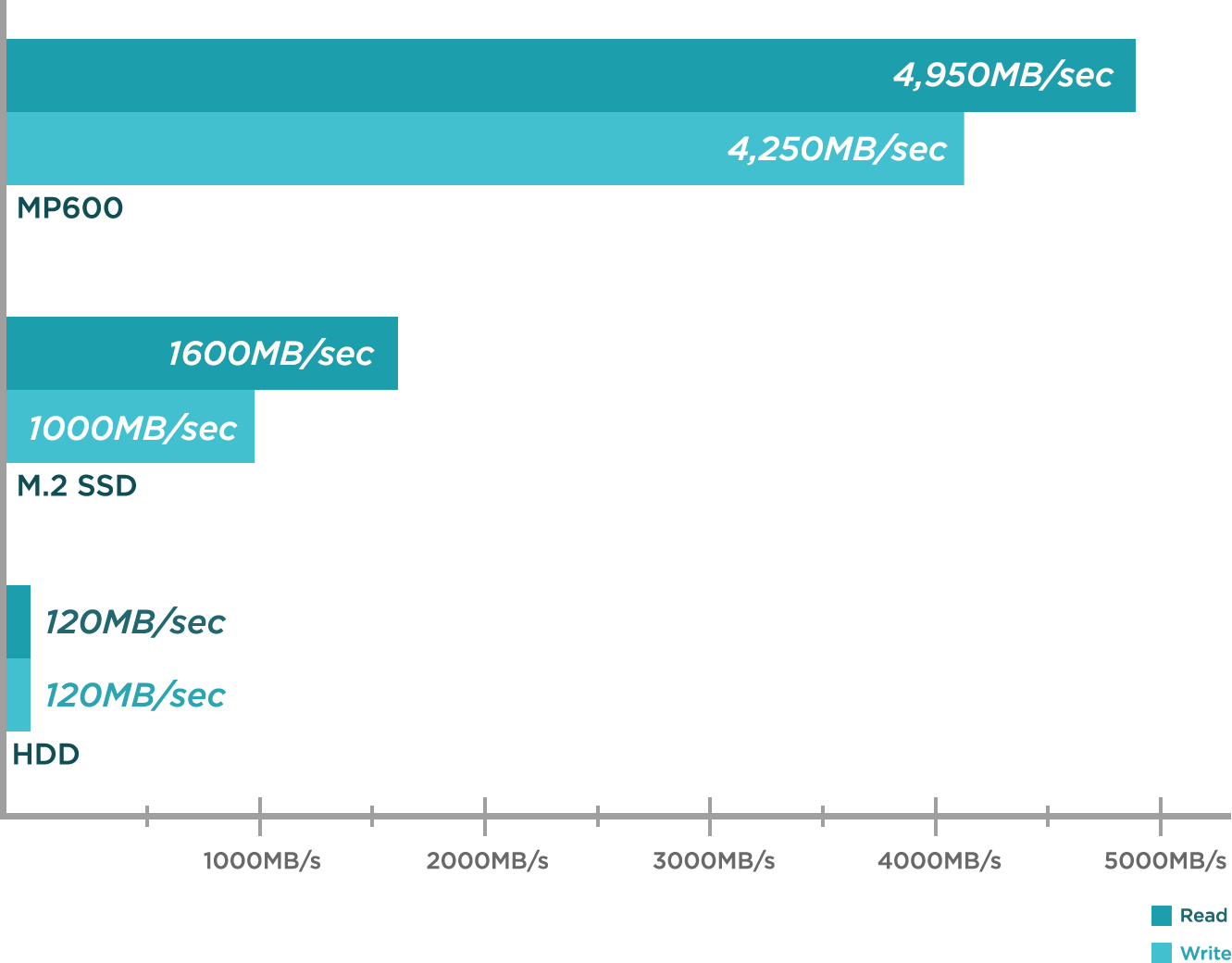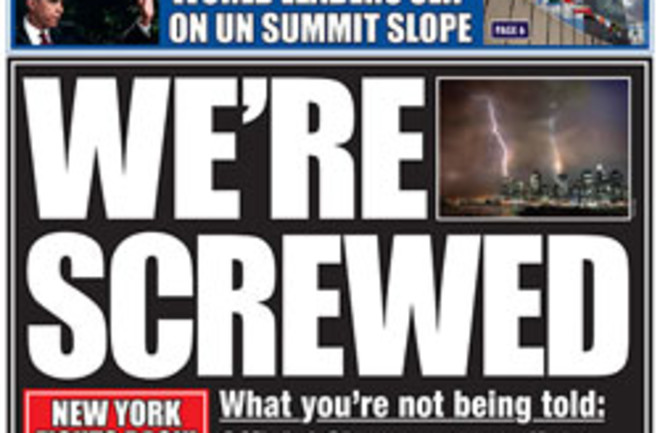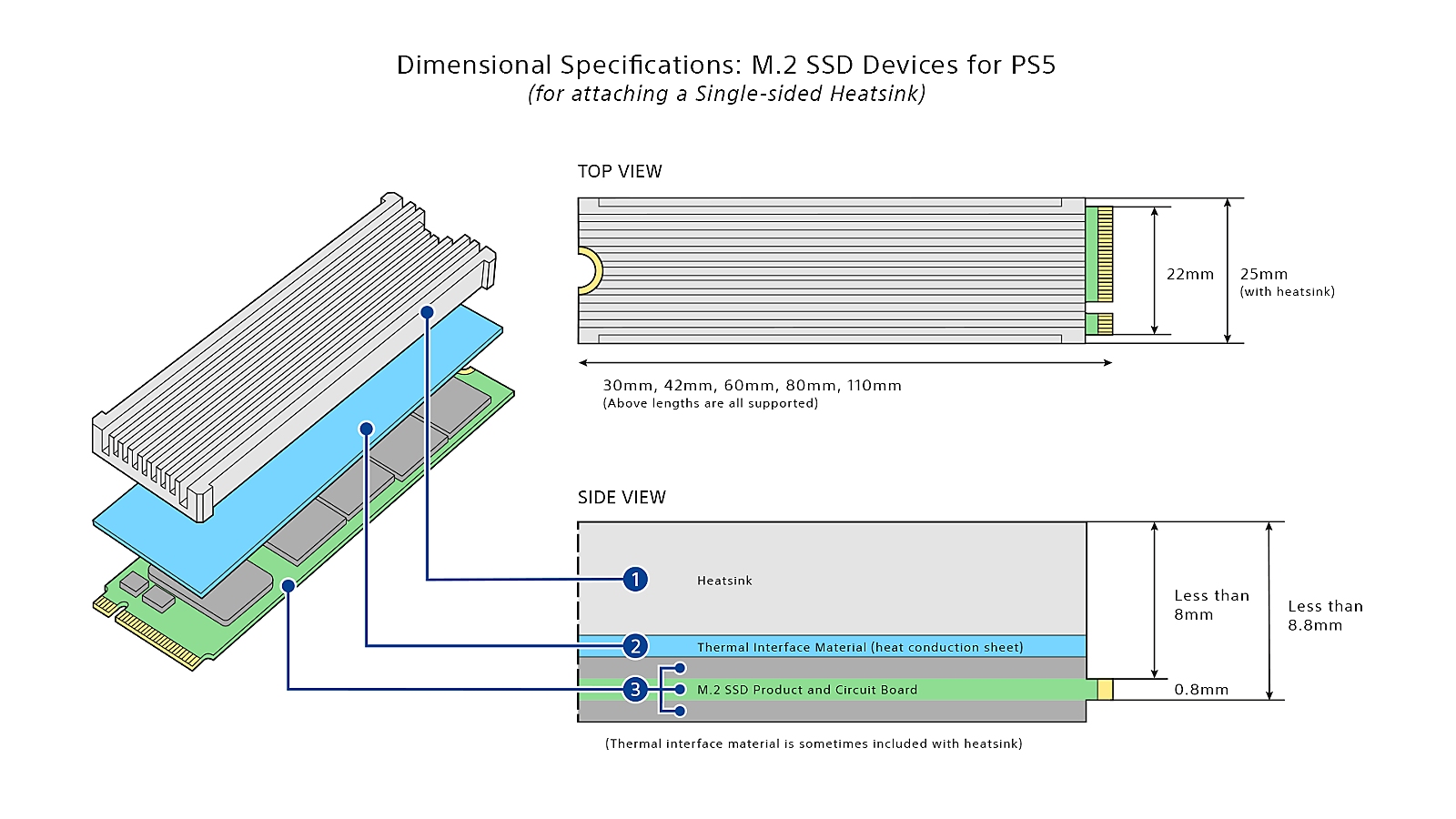Thanks for that!
With Sony now porting everything to PCs, it's imperative that they dont push the SSD requirements too much.
Well not everything, but it'll be quite a bit more and IMHO in shorter intervals than previously.
Thanks for the refresher. People do not pay attention or have selective amnesia. Everything was said in that presentation, the SSD must be at least as fast as ours meaning 5.5GB/s and higher. People ran with the 7GB/s SSD for their narrative.
"Narrative", sure. It was explicitly mentioned at one point shortly after the presentation that due to differences in priority levels, channels, firmware, cache setups etc. between the internal drive and 3P SSDs, the 3P drives would need to be 7 GB/s or faster to make up for overhead costs to provide similar performance to the internal one. That was a common-sense conclusion.
What's going to be more interesting now is if 3P SSDs with the same bandwidth as the internal one but marked differences in priority levels, channel setups etc. offer the same performance as the internal one for 1P and 3P ones, but especially 1P ones. If so, it'll kill one of the big talking points about a lot of the 1P games needing to target the type of SSD I/O as the internal drive to run at the performance level they have.
Which also inadvertently means there'll be nothing on a technological level preventing any future 1P games getting ported to PC, probably to the chagrin of some particular folks.
Also:
I can understand if people claim 7GB/s because he did have that slide up that showed the full capability of 4x PCIE 4.0 drive. He never actually said that you need 7GB/s, what he said was any SSD you add "has to be
at least as fast as ours" plus "
a little extra speed to take care of issues arising from" having to arbitrate the extra priority level.
Well when you say "a little extra speed" and then have an icon graphic showing a 7 GB/s SSD on the screen at the exact same time, you can't blame people for assuming a link in that "little extra speed" equating to a 7 GB/s drive.
Don't try twisting this into everyone who thought that to be the case, doing it for nefarious purposes. It was a genuine conclusion of thought for many at the time.
The Xbox is a console. Having to go out and buy an additional adapter isn't easier for the customer. Also the speed of the Xbox solution has been on par with what the PlayStation offers despite PlayStation's being so much faster on paper. It's also been proven that for the PS5 to fully take advantage of that speed it has to be specifically coded for. Also £165 is $230 is MORE than the Xbox card currently. I don't think that suggestion is better than what is currently available for Xbox now.
The MS solution is fitting for a console. Consoles are proprietary by definition. The speed argument is meaningless when it doesn't equal to much in real world conditions. More than twice the speed of Xbox's card, are you seeing significantly faster loading on all games with the PS5 currently? If I remember correctly there has even been some games that have loaded faster on Xbox which is amazing. The price is the same or even less than what Sony's solution is offering right now. Well that and it works today and we have no idea when Sony's solution will become active. This is just an area when it sounded good on paper but as we can see the actual implementation is less impressive.
You're gonna get a lot of people downplay Microsoft's solution as a cashgrab or being a "poor" price/performance value proposition, when both conclusions are outright wrong. The misconception for example that proprietary solutions always remain high: well last I remember, things like memory cards existed as proprietary solutions. But then this radical thing happened where more manufacturing partners were brought onboard, helping to drive MSRP costs down as volume of units on the market increased. For whatever reason, even though Microsoft has outright said they will be expanding partner support for their drives in the future beyond Seagate, there's a lot of people still treating it as if Seagate will forever be the only option, that capacities will stay at 1 TB, and that prices will remain at the current level for seemingly forever.
True, there's benefits to an open solution, but you're also right in that for something like storage an open solution is pretty un-console like; it has to be rolled out very carefully and takes a while, like we're seeing with the M.2 expansion support on PS5. If people are willing to wait through that then that's perfectly fine, but neither approach is without downsides or drawbacks.
Personally, for a console, I prefer MS's approach because it's in line with how consoles have handled this for decades when looking at memory cards for example, and no one had complaint with those in the past. As long as more partners besides Seagate are allowed to make official expansion cards, that should help with keeping prices down for the customer. The reason PS Vita's solution failed was precisely because Sony never opened it up for manufacturing partners to make their own storage variants, as that would've created competition to keep prices more fair. Outside of that the storage solution for the Vita in itself was very well done.









